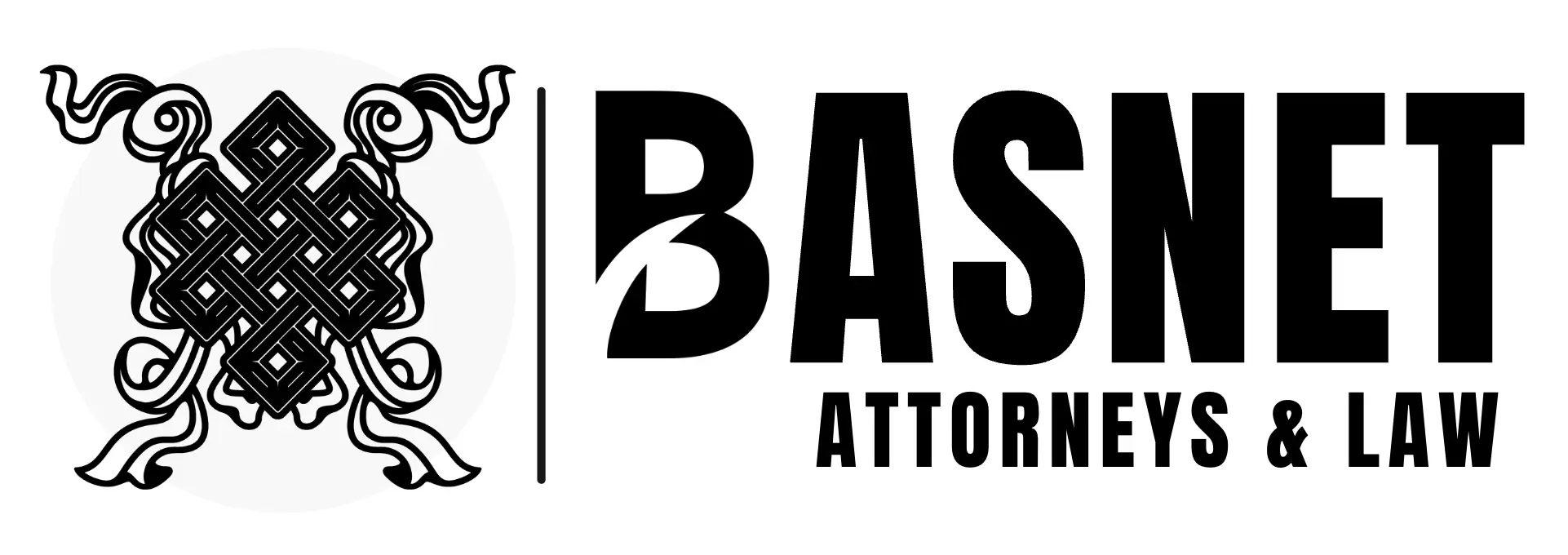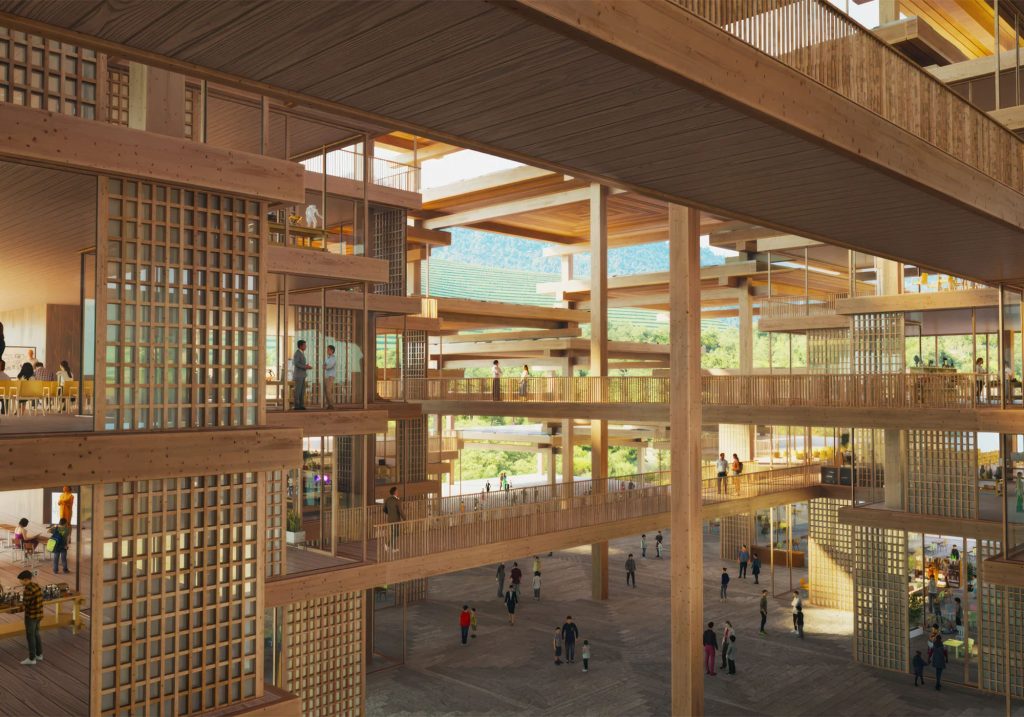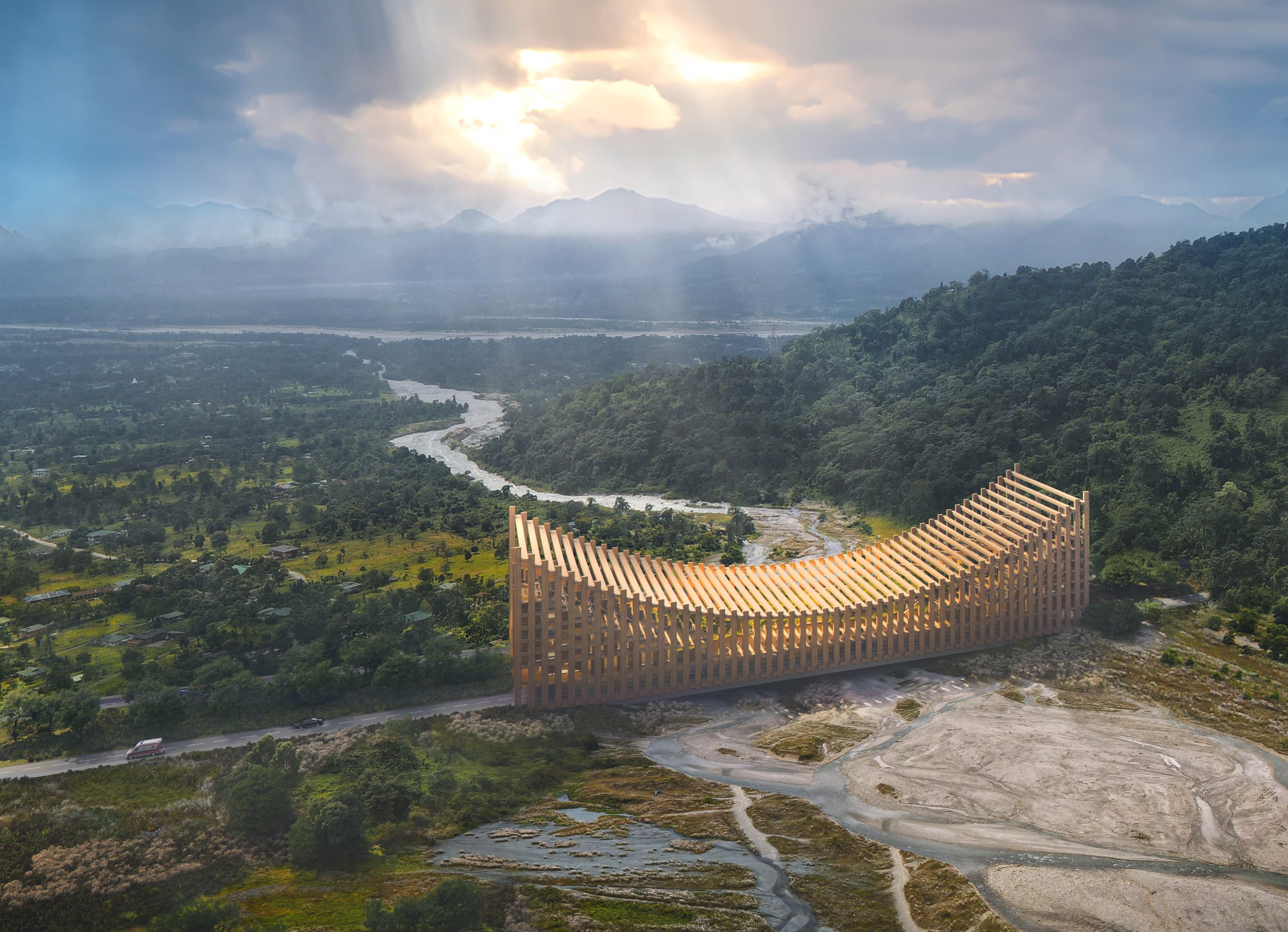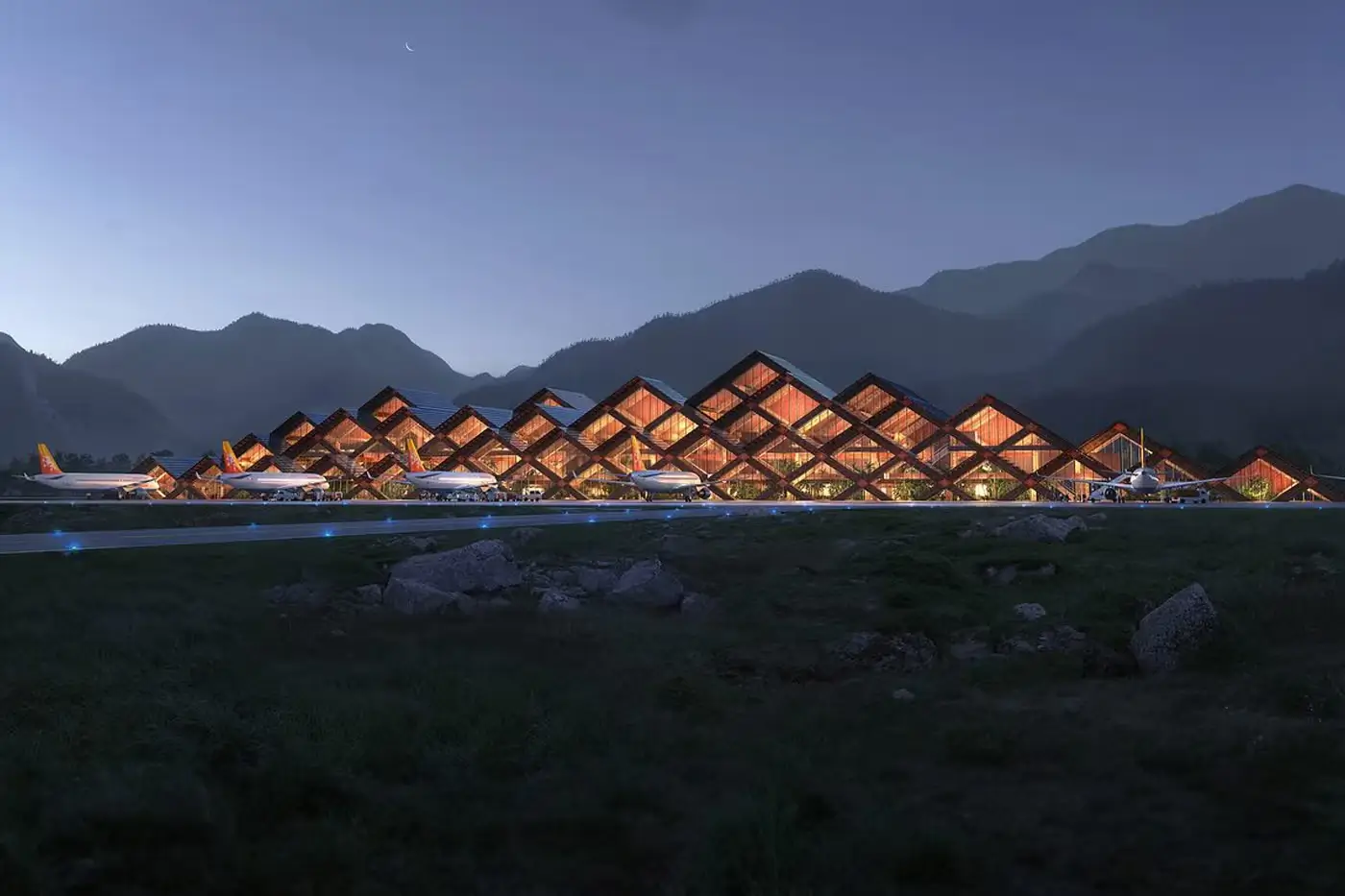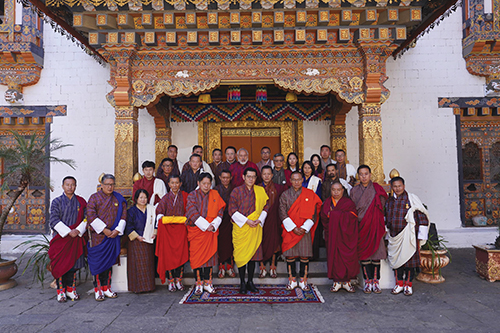In the evolving landscape of special administrative regions worldwide, Bhutan's Gelephu Mindfulness City (GMC) stands out not only for its ambitious vision of mindful urban development but also for its innovative legal and governance framework. This comprehensive analysis explores how GMC's legal structure represents a pioneering approach that balances international best practices with Bhutanese cultural values, creating a unique regulatory environment designed to foster both economic prosperity and holistic well-being.
The Establishment of GMC as a Special Administrative Region
On December 17, 2023, during Bhutan's 116th National Day celebration, His Majesty King Jigme Khesar Namgyel Wangchuck announced the establishment of Gelephu Mindfulness City as a Special Administrative Region (SAR). This momentous declaration marked the beginning of a new chapter in Bhutan's constitutional journey, creating an autonomous region with independent executive, legislative, and judicial systems separate from Bhutan's existing laws.
The GMC SAR, covering 2,500 square kilometers in the southern plains of Bhutan, was conceived as a "vibrant economic hub" with executive autonomy and legal independence. However, unlike many special economic zones worldwide that focus primarily on regulatory relaxation to attract investment, GMC's legal framework was designed with a broader purpose: to create an environment where economic development aligns with Bhutanese values of mindfulness, sustainability, and holistic well-being.
Constitutional Foundations and Legal Autonomy
GMC's establishment represents a significant constitutional innovation within Bhutan's legal landscape. While maintaining ultimate sovereignty under the Bhutanese monarchy, GMC operates with substantial autonomy, allowing it to develop legal frameworks tailored to its unique development goals.
This autonomy is structured through a carefully designed governance system that includes:
Executive Authority: Led by a Governor (currently former Prime Minister Dasho Dr. Lotay Tshering) and CEO (Mun Leong Liew), with a Board of Directors comprising experts in investment, infrastructure, education, and technology.
Legislative Framework: The power to enact laws specific to the region, beginning with the landmark "Application of Laws Act 2024" (GMC Law No. 1 of 2024).
Judicial System: An independent judiciary applying GMC's specific legal framework, ensuring consistent interpretation and enforcement.
Royal Oversight: His Majesty the King serves as Chairman of the Board, providing continuity with Bhutan's constitutional monarchy while enabling GMC's distinctive approach.
This structure creates what legal scholars describe as a "constitutional laboratory"—a space where innovative governance approaches can be tested while maintaining connection to Bhutan's broader constitutional framework.
The Application of Laws Act 2024: A Hybrid Legal Approach
On December 26, 2024, GMC marked a milestone in its development with the enactment of its first law, the "Application of Laws Act 2024" (GMC Law No. 1 of 2024), which received Royal assent from His Majesty the King. This groundbreaking legislation established the foundational legal framework for GMC by adopting:
- 18 Singaporean Laws: Forming the primary legal framework for general governance, commercial activities, and civil matters.
- 10 Abu Dhabi Global Market Financial Regulations: Specifically governing company law, taxation, and financial services.
This hybrid approach represents a deliberate strategy to combine internationally recognized legal standards with adaptations suited to GMC's unique context and vision. By selecting Singapore's legal framework as its primary foundation, GMC benefits from a system widely respected for its clarity, efficiency, and business-friendly approach while maintaining high standards of governance.
The incorporation of Abu Dhabi Global Market Financial regulations reflects GMC's ambition to establish itself as a financial innovation hub, particularly in the realm of digital assets and sustainable finance. These regulations provide a sophisticated framework for financial services while incorporating stringent compliance standards.
Key Legal Domains in GMC's Framework
Business and Commercial Law
GMC's commercial legal framework aims to create a business-friendly environment while maintaining alignment with the city's foundational principles. Key elements include:
- Company Formation and Governance: Streamlined processes for entity establishment with clear corporate governance requirements that emphasize transparency and accountability.
- Contract Enforcement: Strong protections for contractual rights balanced with considerations of fairness and good faith.
- Intellectual Property: Robust protection for innovations and creative works, particularly those aligned with GMC's focus areas such as sustainable technology and mindful design.
- Competition Law: Frameworks that promote fair competition while discouraging practices that undermine social or environmental well-being.
Unlike many special economic zones that minimize regulation to attract investment, GMC maintains meaningful standards while removing unnecessary bureaucratic obstacles. This approach seeks to attract businesses that value both efficiency and ethical operation.
Financial Regulation and Digital Assets
Perhaps the most innovative aspect of GMC's legal framework is its approach to financial services and digital assets. On January 8, 2025, GMC announced its intention to recognize digital assets such as Bitcoin (BTC), Ether (ETH), and BNB as part of its strategic reserves—making it one of the first jurisdictions globally to take such a step.
This progressive stance is supported by a sophisticated regulatory framework that includes:
- Digital Asset Recognition: Clear legal status for cryptocurrencies and other digital assets, focusing on those with large market capitalizations and deep liquidity.
- Blockchain Governance: Regulatory frameworks for blockchain-based services that balance innovation with consumer protection.
- Digital Banking: Legal foundations for Asia's first fully "Digital Reserve Bank" named "Oro" and the digital currency named "Ter."
- KYC and AML Protocols: Stringent Know Your Customer and Anti-Money Laundering regulations to ensure financial integrity while enabling innovation.
This framework positions GMC at the forefront of digital asset regulation globally, creating a jurisdiction that embraces financial innovation while maintaining robust safeguards against misuse.
Environmental Law and Sustainability
Reflecting Bhutan's status as the world's first carbon-negative country, GMC's legal framework incorporates strong environmental protections and sustainability requirements:
- Environmental Impact Assessment: Rigorous processes for evaluating the ecological impact of development projects.
- Renewable Energy Mandates: Requirements for buildings and operations to utilize green energy sources.
- Waste Management Standards: Strict regulations on waste reduction, recycling, and disposal, including the banning of single-use plastics.
- Biodiversity Protection: Legal safeguards for wildlife sanctuaries and natural areas within the GMC territory.
These environmental provisions are not peripheral but central to GMC's legal framework, reflecting the understanding that ecological health is fundamental to genuine prosperity.
Labor and Immigration
GMC's approach to labor and immigration law balances the need for international expertise with commitments to local employment and skills development:
- Skills Transfer Requirements: Frameworks requiring foreign companies to contribute to upskilling local workers.
- Worker Protections: Strong labor standards ensuring fair treatment and well-being of all employees.
- Targeted Immigration Pathways: Streamlined processes for experts in priority sectors while maintaining overall immigration integrity.
- National Service Integration: Alignment with Bhutan's one-year national service program for 18-year-olds, incorporating vocational training relevant to GMC's development needs.
This balanced approach aims to create meaningful employment opportunities for Bhutanese citizens while allowing the selective introduction of international expertise where needed.
Regulatory Bodies and Governance Structure
The implementation of GMC's legal framework is overseen by a carefully designed governance structure that includes:
Gelephu Mindfulness City Authority (GMCA)
The GMCA serves as the primary regulatory body, responsible for:
- Enacting and enforcing GMC-specific legislation
- Licensing and oversight of businesses operating within the region
- Coordination with Bhutan's national government
- International agreements and partnerships
Sector-Specific Regulatory Bodies
Specialized regulatory entities focus on key domains including:
- Financial Services Authority
- Environmental Protection Agency
- Digital Innovation Commission
- Urban Development Board
These bodies combine technical expertise with commitment to GMC's foundational principles, ensuring consistent application of the legal framework across different sectors.
Dispute Resolution Mechanisms
GMC's legal system includes sophisticated dispute resolution mechanisms designed to provide efficient, fair adjudication while minimizing adversarial processes:
- Commercial Arbitration: International standard arbitration services for business disputes.
- Mediation Centers: Facilities and frameworks for collaborative conflict resolution, reflecting Bhutanese cultural emphasis on harmony.
- Specialized Tribunals: Expert panels for technical domains such as financial services, environmental compliance, and digital innovation.
- Courts of Law: Traditional judicial bodies applying GMC's legal framework for matters requiring formal adjudication.
This multi-layered approach provides options suited to different types of disputes while maintaining overall coherence in the application of GMC's legal principles.
Comparative Analysis: GMC vs. Other Special Administrative Regions
To fully appreciate GMC's legal innovation, it's instructive to compare its approach with other notable special administrative regions worldwide:
Hong Kong SAR (China)
While both regions operate with significant autonomy from their parent nations, key differences include:
Legal Foundation: Hong Kong's framework is based on the "One Country, Two Systems" principle with a 50-year transition period, while GMC's arrangement is designed as a permanent feature of Bhutan's governance landscape.
Economic Philosophy: Hong Kong emphasizes laissez-faire capitalism and minimal government intervention, whereas GMC promotes "mindful capitalism" with deliberate alignment of economic activity with broader well-being.
Environmental Integration: GMC places environmental sustainability at the core of its legal framework, unlike Hong Kong's more conventional approach to environmental regulation.
Dubai International Financial Centre (UAE)
Both DIFC and GMC adopt aspects of international legal frameworks, but with notable distinctions:
Scope of Application: DIFC's legal framework applies primarily to financial services within a geographically limited zone, while GMC's framework governs all aspects of life across its entire territory.
Cultural Integration: GMC explicitly integrates Bhutanese cultural values into its legal framework, whereas DIFC operates more as an international enclave with limited integration of local cultural elements.
Digital Asset Approach: While both jurisdictions embrace financial innovation, GMC's recognition of digital assets as strategic reserves represents a more fundamental integration of these technologies.
Singapore
GMC's adoption of Singaporean laws creates natural parallels, but important differences remain:
Scale and Context: Singapore's legal framework evolved over decades as a sovereign city-state, while GMC adapts these principles within the context of a special region within Bhutan.
Philosophical Foundation: Singapore's pragmatic approach to governance contrasts with GMC's explicit grounding in mindfulness and Gross National Happiness principles.
Environmental Ambition: GMC's commitment to carbon-negative development exceeds even Singapore's respected environmental standards.
Great Nicobar Island Development Project (India)
As another emerging special administrative region in South Asia, Great Nicobar offers interesting comparisons:
Development Approach: Great Nicobar focuses primarily on strategic and economic considerations, while GMC balances these with explicit cultural and spiritual dimensions.
Environmental Considerations: Both regions face the challenge of developing pristine areas, but GMC's framework incorporates more stringent environmental protections from the outset.
Governance Structure: GMC's autonomous governance model provides greater legal independence than Great Nicobar's more centralized approach.
Legal Innovations and Global Significance
GMC's legal framework represents several innovations with potential global significance:
Integration of Well-being Metrics into Legal Standards
Unlike conventional legal systems that focus primarily on rights, obligations, and procedures, GMC's framework incorporates well-being considerations directly into legal standards. This approach operationalizes Bhutan's Gross National Happiness philosophy within a legal context, creating mechanisms to evaluate laws and regulations based on their impact on holistic prosperity rather than narrowly defined economic metrics.
Blockchain-Based Legal Infrastructure
GMC is pioneering the integration of blockchain technology not just as a regulated sector but as infrastructure for legal processes themselves. This includes:
- Transparent land registries using distributed ledger technology
- Smart contracts for certain governmental functions
- Immutable record-keeping for regulatory compliance
- Digital identity systems with privacy protection
These applications move beyond simply regulating blockchain to leveraging its capabilities for more efficient, transparent governance.
Preventive Legal Design
Rather than focusing primarily on remedies for harms after they occur, GMC's legal framework emphasizes preventive approaches that align incentives with desired outcomes from the outset. This "preventive legal design" aims to reduce the need for enforcement by creating structures where compliance naturally aligns with participants' interests.
Cross-Border Regulatory Collaboration
GMC's position at the nexus of South and Southeast Asia creates opportunities for innovative cross-border regulatory approaches. The framework includes mechanisms for regulatory collaboration with neighboring jurisdictions, potentially creating models for regional harmonization in areas such as environmental protection, digital commerce, and sustainable finance.
Challenges and Evolution of the Legal Framework
Despite its thoughtful design, GMC's legal framework faces several challenges that will shape its evolution:
Harmonization with National Law
While operating autonomously, GMC must maintain appropriate connections to Bhutan's national legal system. This requires ongoing attention to:
- Constitutional boundaries between national and regional authority
- Coordination on matters of shared jurisdiction
- Management of legal transitions for entities operating in both contexts
Capacity Building
Implementing this sophisticated legal framework requires substantial legal expertise. GMC is addressing this through:
- International partnerships with legal institutions
- Training programs for Bhutanese legal professionals
- Phased implementation aligned with capacity development
- Selective recruitment of international legal experts
Balancing Tradition and Innovation
Perhaps the most fundamental challenge is maintaining the balance between Bhutanese cultural values and the demands of a modern, internationally connected economic hub. This tension will likely drive ongoing refinement of the legal framework as implementation proceeds.
Future Directions: The Evolving Legal Landscape
As GMC develops, several trends are likely to shape the evolution of its legal framework:
Expanded Digital Governance
The initial steps toward digital asset recognition and blockchain integration will likely expand into more comprehensive digital governance approaches, potentially including:
- AI governance frameworks
- Digital commons management
- Virtual and augmented reality regulations
- Quantum computing considerations
- Enhanced Environmental Jurisprudence
As climate challenges intensify globally, GMC's environmental legal framework will likely develop increasingly sophisticated approaches to:
- Carbon accounting and offsets
- Biodiversity protection
- Climate adaptation requirements
- Transboundary environmental management
Mindfulness-Based Dispute Resolution
Building on Bhutanese traditions and contemporary mindfulness practices, GMC may pioneer new approaches to dispute resolution that emphasize:
- Contemplative practices in legal processes
- Restorative rather than punitive approaches
- Holistic evaluation of outcomes
- Prevention of legal conflicts through mindful design
Conclusion: A Legal Framework for the 21st Century
Gelephu Mindfulness City's legal framework represents a bold experiment in governance for the 21st century—one that seeks to harness the best of international legal practice while remaining firmly grounded in Bhutanese values and the principles of mindful development.
By creating a hybrid system that combines Singaporean efficiency, Abu Dhabi's financial sophistication, and Bhutan's commitment to holistic well-being, GMC offers a potential model for regions worldwide seeking to balance economic dynamism with sustainability and human flourishing.
As implementation proceeds and the framework evolves through practical application, GMC's legal innovations may well influence governance approaches far beyond its borders. In a world grappling with the limitations of conventional economic and legal models, GMC's mindful approach to law and governance provides a compelling alternative vision—one where legal frameworks serve not just economic efficiency but the broader goal of creating genuinely sustainable prosperity for all.
Image Coutesy: GMC Bhutan
